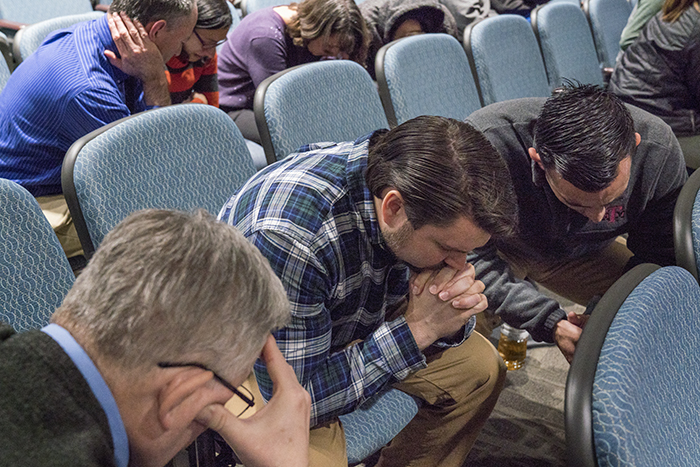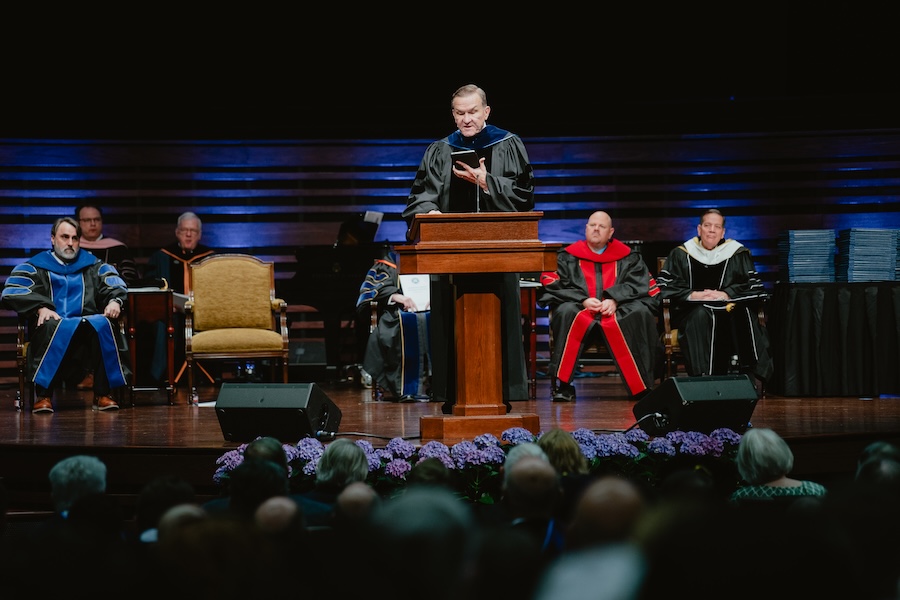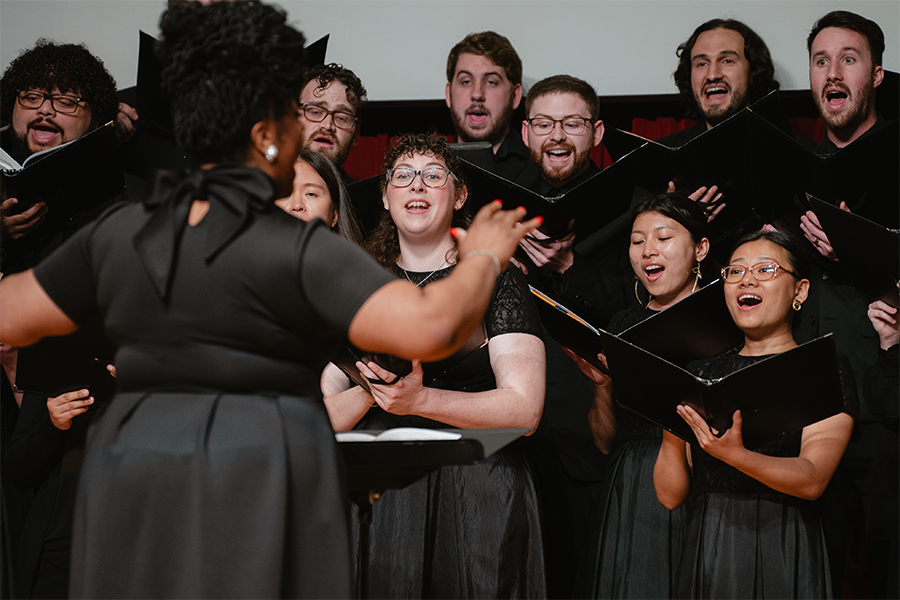The power of prayer cannot be denied, mission leaders say
February 16, 2018

Prayer is a powerful tool to help persecuted congregations worldwide, an array of speakers agreed during the Persecuted Church Conference, sponsored by the World Missions Center, Feb. 13-15. During five sessions of discussion and an evening of prayer, the presenters, who have led churches in areas of the world where Christians are persecuted, related how prayer is making a significant difference.
Worldwide, prayer can be a powerful force of change, all said. Specifically, they agreed that prayer is currently bringing change to North Korea that could lead to peace and the embrace of Christianity, and they prayed for that outcome.
Speaking on Feb. 12 and 13, Nasser al’Qahtani extolled the power and purpose of prayer. “I encourage you to wake up to your potential,” he said. A former Jihadist Muslim, he currently is a missionary—along with his wife, Daisy—with Disciple Nations, a ministry dedicated to spreading the supremacy of Christ and dependence on the Holy Spirit through prayer. He has been called to reach Muslim people throughout the world and to train new believers to become disciples of Christ.
He spoke of how the extremist militant group ISIS regained control of Mosul, Iraq’s second-largest city, last year after months of combat. “I talked with Christians there, and everyone expected it was going to happen,” al’Qahtani said. “ISIS just took over and raised their black flag.”
It was assumed that Erbil, an hour away from Mosul, would be next to fall. “Christians in Erbil feared that they would soon be living under Muslim rule,” he said. “So they prayed. And ISIS never came. The Muslims know this story. They know that when the Christians prayed, they were rescued.”
On Feb. 14, Sam McVay, who founded Disciple Nations with his wife, Amy, encouraged prayer as a means of change in other nations. In Ghana, he helped launch a training center, and then he trained pastors in South Korea to be prepared to rush into North Korea with Bibles in case of a regime change.
He and the pastors’ group traveled through the Korean demilitarized zone, carefully controlled—they were told not to look at others or to speak or fraternize. Then, after they were allowed access to North Korea, they “held a rousing prayer meeting.”
McVay returned to the United States afterward, while other pastors traveled on into a perilous zone where the borders of North Korea, China and Russia are in close proximity. One of the pastors was brutally slain on that mission.
McVay recalled a declaration he saw posted on a wall during the trip: “The way is hard, the road is hard, but we will not quit until we are martyred.” That kind of sacrifice inspires prayer and involvement, he said.
“We are more engaged when there is persecution,” he said. “Prayer has to be more focused at an emotional level. It has to be more intense than just praying, ‘Lord, I hate that that guy died. I hope that no more die.’”
While he believes that churches should pray more for persecuted Christians, McVay also believes that forced prayer deters participation. But prayer done in a spirit of joy can be change-making, he said. “It’s a privilege to pray,” he said. “You get to be in the presence of God.”
A fellow missionary, who uses the pseudonym Andrew Baldwin, spoke next, encouraging local churches to envision how broadly they can spread God’s Word. Baldwin leads a cluster of missionaries within the Central Asia Affinity Group, spreading the Gospel in Iran, Iraq, the United Arab Emirates, Armenia, Azerbaijan, the Republic of Georgia and Turkey.
“Can you fulfill the Great Commission and not leave Fort Worth?” he asked. “By taking a cultural view, you can.” He encouraged churches to “be Gospel witnesses and break down cultural barriers.”
On Feb. 15, McVay returned to emphasize that the need for prayer is urgent. “To pray for the persecuted church is to pray for the advancement of Jesus Christ everywhere,” he said. He prayed with the group that Kim Jong-un, North Korea’s supreme leader, would remember the legacy of his grandparents, who were believers. “Right now, Kim Jong-un is standing in the way of Christianity, and he must be won over or removed,” McVay said.
Prayer must be targeted and focused to be effective, he said. “It helps if you’ve got a vision for prayer,” he said. “Prayer is going to get you across the finish line.”



